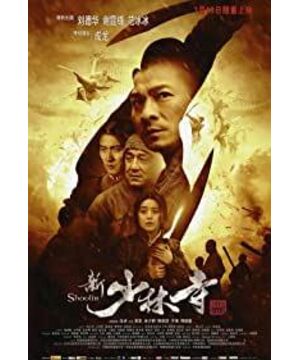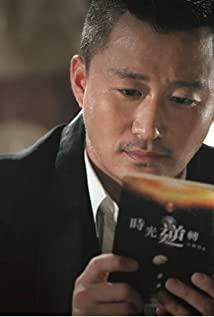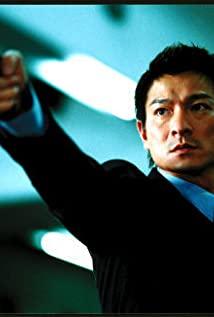Hong Kong filmmakers use costume action films to dominate the world, but there is one problem that they have not been solved extensively, that is, the problem of historical presence. Li Rengang and Chen Musheng are the same. In this regard, only Chen Kexin has done a better job. The roles of Andy Lau and Nicholas Tse in "New Shaolin Temple" are warlords who are separated from each other, but their behaviors are designed according to the routines of Hong Kong gangster movies. They are not the logic of military actions at all. Even a coup is a simple fight. In the style showdown, Nicholas Tse's Cao Manyou must be called "Big Brother" from the beginning to the bad boy style, which feels very far away from that era. Many character behaviors from this lack of normal realistic logic, and the plot feels like an overlord stubbornly bowing. In fact, this kind of situation is common in early Hong Kong movies, but today's Hong Kong-style movies no longer have the original Hu. With Hu's rational aura, facing audiences who have been baptized by many high-quality movies through various channels, they have already lost their convincing power.
As far as the cast is concerned, 20 years back, this is definitely a heavyweight film. The co-starring of Andy Lau and Jackie Chan has a lot of topicality (remember that the last time the two appeared in the same film was also 20 "Fire Island" a year ago), but judging from the current production scale of the film, the producer has not shown enough confidence, and the production seems very tight. The scenes of the whole film are generally small, and there is no panoramic shot that reflects the overall style of the warlord’s troubled times, and this is the worst film I have seen in the past few years. There is generally no ambient sound, and the characters are dialogue in a vacuum. The most typical one is that Andy Lau led his troops into a scene in Dengfeng. The background scene was a cheering crowd, and the only voice we heard was the dialogue between Andy Lau and Shi Xiaohong, which was very funny. This makes "New Shaolin Temple" a blockbuster, but in fact it is full of roughness.
Although it is called "New Shaolin Temple", this is not a remake of the original version, but there are many homogenous elements in it. The thirteen stick monks in "Shaolin Temple" rescued the king of Tang and the warlords here burned Shaolin Temple are all historical facts. Relying on, the story line is also the refuge of Shaolin Temple, after that, the monks tried to seek revenge and take revenge. But the biggest difference here is that Jueyuan, played by Jet Li in "Shaolin Temple", practiced martial arts in the temple, while Hou Jie, played by Andy Lau in "New Shaolin Temple", cultivated his mind. So we saw Jet Li's suffering in the changing seasons. The passages of practicing various martial arts routines, and here we see more of the old abbot played by Hai, and the fire-headed monk played by Jackie Chan’s tireless teachings and explanations of Andy Lau, as well as Wu Jing and Shi Yan. Righteous monks such as Neng and Yu Shaoqun sacrificed their lives and regarded Buddhism as higher than life, giving the whole film a strong preaching meaning. The Shaolin Temple here is not just a temple that preaches Buddhism and saves all living beings, it has become a chaotic world. A holy place for the suffering people to seek spiritual sustenance and physical protection, which makes "New Shaolin Temple" full of flattery. Today's Shaolin Temple has become a huge operating interest group under the leadership of New Era Abbot Shi Yongxin (he is also one of the producers of this film), which makes it difficult for me to be tied up in the film anyway. It's like the old abbot of the crucified Jesus. I can accept a huge placement advertisement with the theme of Shaolin Temple. After all, this is also a cultural heritage left to us by our ancestors, but it is difficult to accept such a perfect heroic characterization and simple and cheap preaching. I don’t know where the fire-headed monk is a character who has not been completely symbolized. Will a little bit of pen and ink express their hesitation or distracting thoughts when facing life and death choices, will it damage the glorious image of these heroes?
As the saying goes, mortals are like this, and so are the Buddhas!
View more about Shaolin reviews










